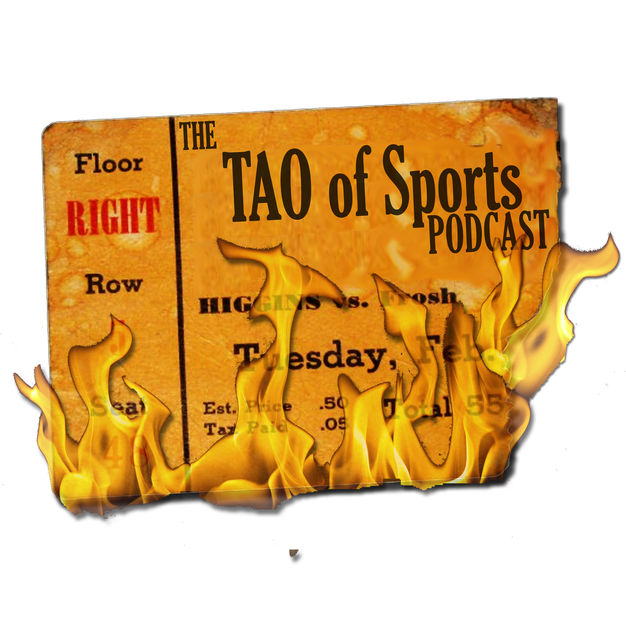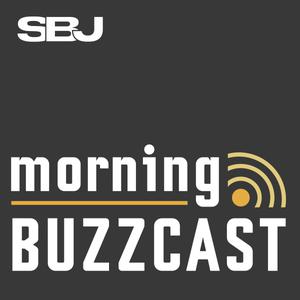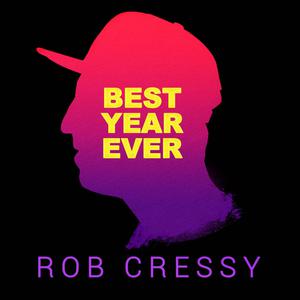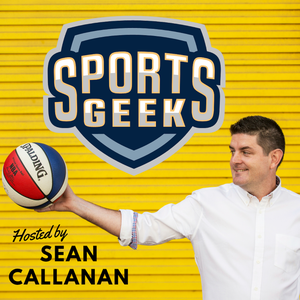
The Tao of Sports Podcast – The Definitive Sports, Marketing, Business Industry News Podcast
Troy Kirby
Sports Revenue & Marketing Consultant Troy Kirby interviews those in the front office within the professional and amateur sports industry, focusing on the details of the business. Ranging topics include ticket sales, marketing, administration, compliance and facility operations.
- 43 minutes 48 secondsEp. 890 - Deandra Duggans (VP Brand Marketing, Las Vegas Aces)
Deandra Duggans is working to merge the gap between brand and fans, by invoking a new sense of what that relationship means in the digital and traditional media world. Duggans shares about her time in the NFL with the Baltimore Ravens, trying to play music that the players like, but also that the fanbase will accept. Duggans then talks about her move out to Las Vegas, helping the Aces at a time where a sold-out situation each night leads to new brand initiatives to ensure that the fan base is always growing. Duggans was interviewed while speaking at the annual college athletic director conference (NACDA) and provides her thoughts on DEI marketing.
17 June 2024, 4:38 pm - 41 minutes 39 secondsEp. 889 - Justin Rogers (Assistant Athletic Director / Resource Development, Boise State)
As NAATSO time in Las Vegas hits, it's a visit with Justin Rogers, who oversees the revenue generation aspects of Boise State Athletics as "Resource Development." While that title is a bit new on the landscape, the role features many old school interests such as ticket sales, marketing and gift development. Rogers shares his viewpoint of capturing the elusive fan as athletic department revenue generation cycles increase. Rogers also talks about his passion for ensuring that each person who steps foot onto Boise State's campus creates a lifelong interest in the school and athletic department.
10 June 2024, 12:52 pm - 37 minutes 17 secondsEp. 888 - Andrew Rubinstein (Annual Fund and Athletic Development Director, Lake Superior State University)
Andrew Rubinstein left the world of professional sports and group ticket sales to join the ranks of the annual fund at a remote university with Division I hockey in the state of Michigan. Rubinstein shares his choices, how he interacts with potential and current donors using technology such as Zoom, and embraces the idea that there's a longer play at stake when speaking to someone about the school. Rubinstein's background also includes several professional minor league hockey stints, where he learned from the different aspects of selling tickets, including a short time in Tucson with the Roadrunners. Rubinstein is also a budding politician, so he's getting used to having an earful about how to fix every situation imaginable, including those outside of his control.
15 April 2024, 1:12 pm - 55 minutes 22 secondsEp. 887 - Garrett Nolan (Independent Ticket Consultant)
It's been more than a minute since Garrett Nolan came on the podcast, way back in 2015 on Ep. 449. Nolan was a working stiff for one arena back then, but is now on his own, helping various platforms and partners achieve their revenue goals through his expertise. Nolan talks about his journey from being employed by one venue to his own independent consultancy, which includes concerts, casinos and comedy clubs. Nolan has his own views on ticket bots, their relevancy in the marketplace and what the primary market can do to hinder them altogether.
8 April 2024, 1:04 pm - 33 minutes 43 secondsEp. 886 - Craig Cugno (Vice President & General Manager, Ticket Sales - University of Connecticut at TAYMAR Sales U.)
Craig Cugno has had his work cut out for him, because as much as he wants to have two winning college basketball teams, it means that he has to work that much harder to get their off-site arenas filled up each, eight times a year. Good problems to have. Cugno discusses his start in minor league baseball, selling minor league hockey, then going to the University of Rhode Island athletics, before the University of Connecticut. At the end of it all, Cugno still focuses on the idea that group sales and training matters above all else, because success on the field or court can be fleeting, but good sales techniques will stay forever.
4 April 2024, 3:28 pm - 33 minutes 10 secondsEp. 885 - Paul Fruitman (Chief Consultant, iSports Insights)
It's been over 11 years since Paul Fruitman came on the podcast. The Canadian sports executive has ventured from ticket sales to corporate to now looking at brand insights for the sports space. Fruitman talks about what changed and what hasn't since that time, and how everything matters now to a brand, less on what is in the stadium, but what eyeballs exist outside of it.
1 April 2024, 4:09 pm - 32 minutes 39 secondsEp. 884 - Kyle Pottinger (Sr. Vice President, Ticket Sales & Service, Phoenix Suns)
Kyle has had three stints with the Phoenix Suns, first as an intern, then as a group sales rep, then finally, back to take the lead of the organization's overall ticket sales strategy, now as Senior Vice President of Ticket Sales & Service. Kyle shares his vision of how the Suns have managed to do the impossible, create a 133-game sell-out streak off of the backs of the pandemic, and create one of the biggest brands in the Phoenix metropolitan area. Kyle also talks about some of the legacy issues surrounding ticket sales in general, how to mold new account reps into the fold and how to innovate in sport.
28 March 2024, 5:09 pm - 34 minutes 14 secondsEp. 883 - Joe Bertoletti (Assistant General Manager, Insignia Events)
The last time that Troy talked to Joe, they were at the 2016 NACDA Conference. Troy was at UC Davis and Joe was at Holy Cross. Now, both are no longer in college athletics, which has changed drastically in that time. Joe made his way out to the southwest, working at both Surprise Stadium, the Cactus League home of the Kansas City Royals and Texas Rangers, and now at Insignia Events, owned by the Arizona Cardinals for their State Farm Stadium event conversion unit. Joe talks about the variables of changing over a massive stadium for single weekend events, as well as the blurred differences with college athletics and professional sports.
25 March 2024, 5:04 pm - 1 hour 4 minutesEp. 882 - Rob Yowell (President, Gemini Sports Group)
Rob Yowell has the entry of naming rights explode during his time in the industry, and has adopted the ability to sell new brands on the world of sports. Yowell has spent his time over the last few years helping groups such as bitcoin gain entry into the sports world space. Yowell covers some of the ins and outs of that industry segment, along with the role of sport tourism boards in order to attract larger events to a metropolitan area. Yowell also chats about his own experience as a sport educator at Arizona State University.
21 March 2024, 4:59 pm - 44 minutes 10 secondsEp. 881 - Mike Dellosa (Vice President of Ticket Sales, Arizona Diamondbacks)
Mike Dellosa grew up in the Arizona Diamondbacks organization, rising to the role of Vice Presiden to Ticket Sales. So when it came to the pandemic, he did something drastic, throwing out the playbook entirely on how to sell tickets to fans. Dellosa felt that desperate times called for desperate measures, and he did whatever it took, by forcing in a different membership model than was witnessed at the organization before. And good thing he did, as Dellosa explains, because even the people he has working for him are now of a different generation, Gen-Z, who as he puts it, have some of the "best BS detectors" imaginable.
18 March 2024, 4:55 pm - 34 minutes 56 secondsEp. 880 - Matt Slatus (President, General Manager, Camelback Ranch)
Matt Slatus returns to the podcast, now as President & General Manager of Camelback Ranch, the Cactus League home of the Los Angeles Dodgers and Chicago White Sox. Slatus talks about the decade separation between his podcast guesting adventures, how he took a General Manager job at the Ballpark at The Palm Beaches (Houston Astros & Washington Nationals home), and all of the ins/outs of running a two month Spring Training operation, with a lot of other factors throughout the year.
14 March 2024, 5:00 pm - More Episodes? Get the App
Your feedback is valuable to us. Should you encounter any bugs, glitches, lack of functionality or other problems, please email us on [email protected] or join Moon.FM Telegram Group where you can talk directly to the dev team who are happy to answer any queries.
 SBJ Morning Buzzcast
SBJ Morning Buzzcast
 The CUSP Show
The CUSP Show
 Best Year Ever with Rob Cressy
Best Year Ever with Rob Cressy
 Wharton Sports Business Initiative
Wharton Sports Business Initiative
 Sports Geek - A look into the world of Sports Marketing, Sports Business and Digital Marketing
Sports Geek - A look into the world of Sports Marketing, Sports Business and Digital Marketing
 Sports Business Radio Podcast
Sports Business Radio Podcast